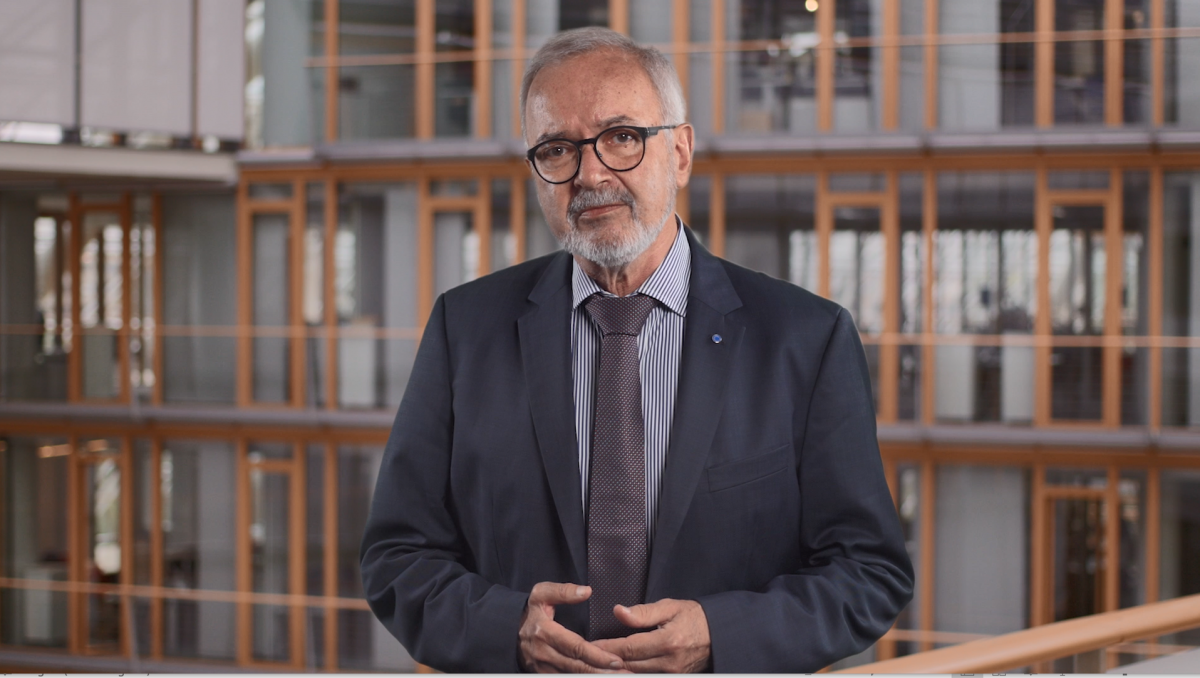- To date, the EIB has invested over €5 billion in the transportation sector of the Western Balkans, supporting regional cooperation and connectivity
- The EU bank has delivered on its €7 billion commitment under the Team Europe response to COVID-19
- During the first seven months of 2021, the EIB already scaled up support for the region by investing close to €600 million in vital infrastructure and SME projects

Werner Hoyer, President of the European Investment Bank (EIB), the bank of the European Union, spoke at the Western Balkans Berlin Summit on 5 July and reaffirmed the EIB’s firm commitment to the Western Balkans and its readiness to intensify support for the transition to greener, more digital and more inclusive economic growth.
The Berlin Process facilitated the development of a partnership between the EU Member States and the Western Balkan partners involved, helping to advance the Connectivity Agenda in the region. It has also created region-wide political consensus and garnered EU support for strategic actions on the Green Agenda, digital transformation and the Common Regional Market.
EIB President Werner Hoyer said: “It is great to join you to celebrate the Berlin Process that has brought the region and its citizens closer together – and closer to the EU. The funding associated with this progress has been impressive. And this support did not diminish during these times of need: the Team Europe initiative – to which EIB is the leading financier – underlines the EU’s commitment and solidarity with the region.”
To watch the entire speech, please follow this link: https://youtu.be/UVmXvhiJWtE
Multi-billion euro support for the Western Balkans
Since 2009, the EIB has committed almost €10 billion in the Western Balkans across all key economic sectors, supporting vital infrastructure projects and development of the private sector. As an active partner in the Berlin Process from the outset, the EIB will continue to support strategic priorities and provide financial and technical expertise to the region’s strategic infrastructure projects and necessary legislative reforms.
The EIB remains fully committed to the socioeconomic development of the region and continues to provide hands-on support for the accession process. To date, the EIB has invested over €5 billion in the transportation sector of the Western Balkans, supporting regional cooperation and connectivity.
Vital support for faster COVID-19 recovery of the Western Balkans
The EU bank has also been at the forefront of EU support for the faster recovery of Western Balkans economies from COVID-19, delivering on its €1.7 billion commitment announced under the Team Europe initiative in May 2020. This EIB support has helped the region alleviate some of the immediate consequences of the pandemic, recover faster and strengthen key sectors of the economy — infrastructure and small and medium-sized enterprises (SMEs). In 2021 alone, the Bank has scaled up its financial support for the Western Balkans by investing close to €600 million in projects in the region.
Economic and Investment Plan — solid basis to unlock up to €20 billion in new sustainable investment opportunities
The EU bank is looking forward to cooperating with the European Commission, fellow financiers and the Western Balkans partners on the roll out of the Commission’s €9 billion Economic and Investment Plan for the region.
“EIB is a bridge where EU policy meets sound projects. We firmly support the EU’s commitment to the Western Balkans and the position that the Western Balkan’s future lies in the EU,” President Hoyer concluded.
With the European Commission and our partner financiers, such as the European Bank for Reconstruction and Development (EBRD), the Bank plans to accelerate implementation of projects on the ground, ensuring that investments yield concrete results for citizens and businesses in the region and contribute to speeding up convergence and accession. The EIB is also co-organising the European Commission’s Rail Summit to be held in September in cooperation with the Transport Community and the EBRD to mark the European Year of Rail. The summit will create a platform for discussion about policy and project issues in rail outlined in the Economic and Investment Plan for the region and the Sustainable and Smart Mobility Strategy.
As the EU climate bank, the EIB will actively support the transition to a greener, more digital and more sustainable economic model, in terms of both infrastructure and private sector development. In addition to connectivity related investments and SME development, the Bank will also intensify support for health, education, the environment and municipal development and boost social inclusion through innovative financing instruments and increased technical assistance.